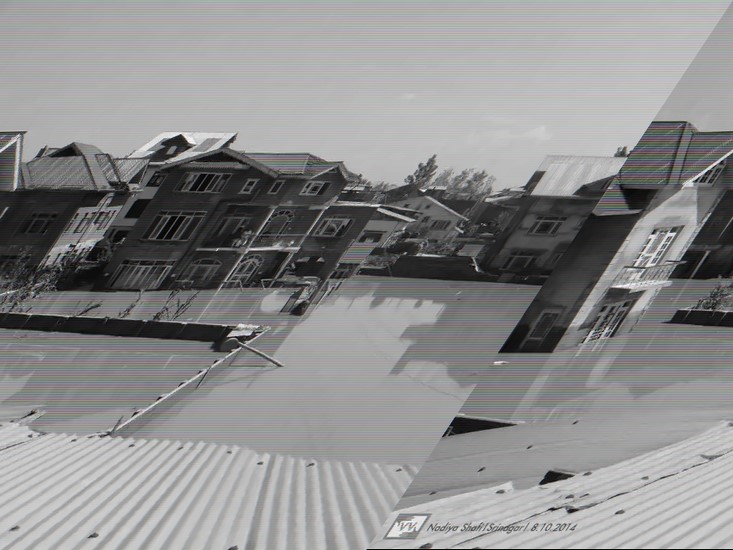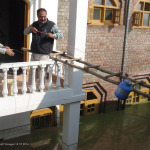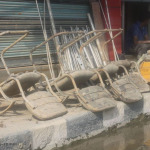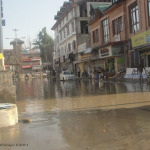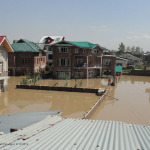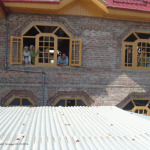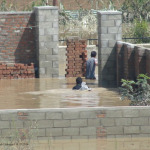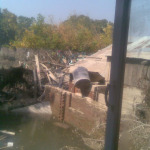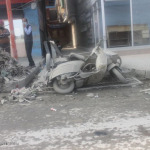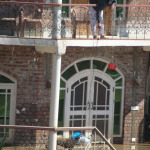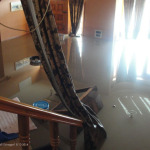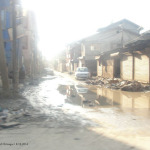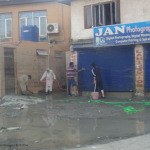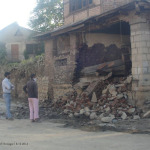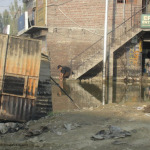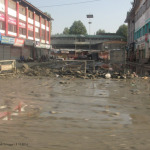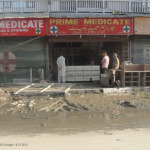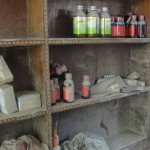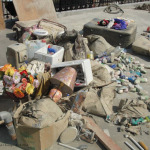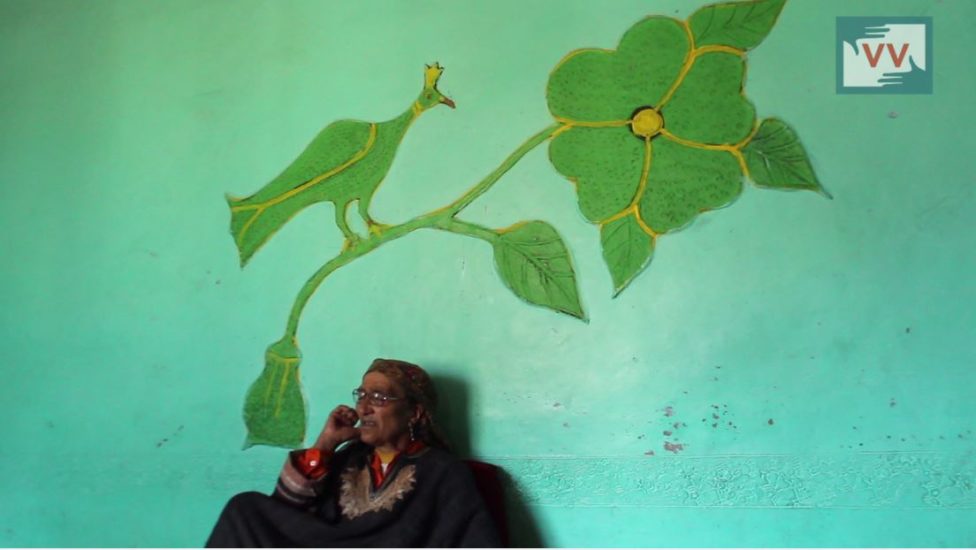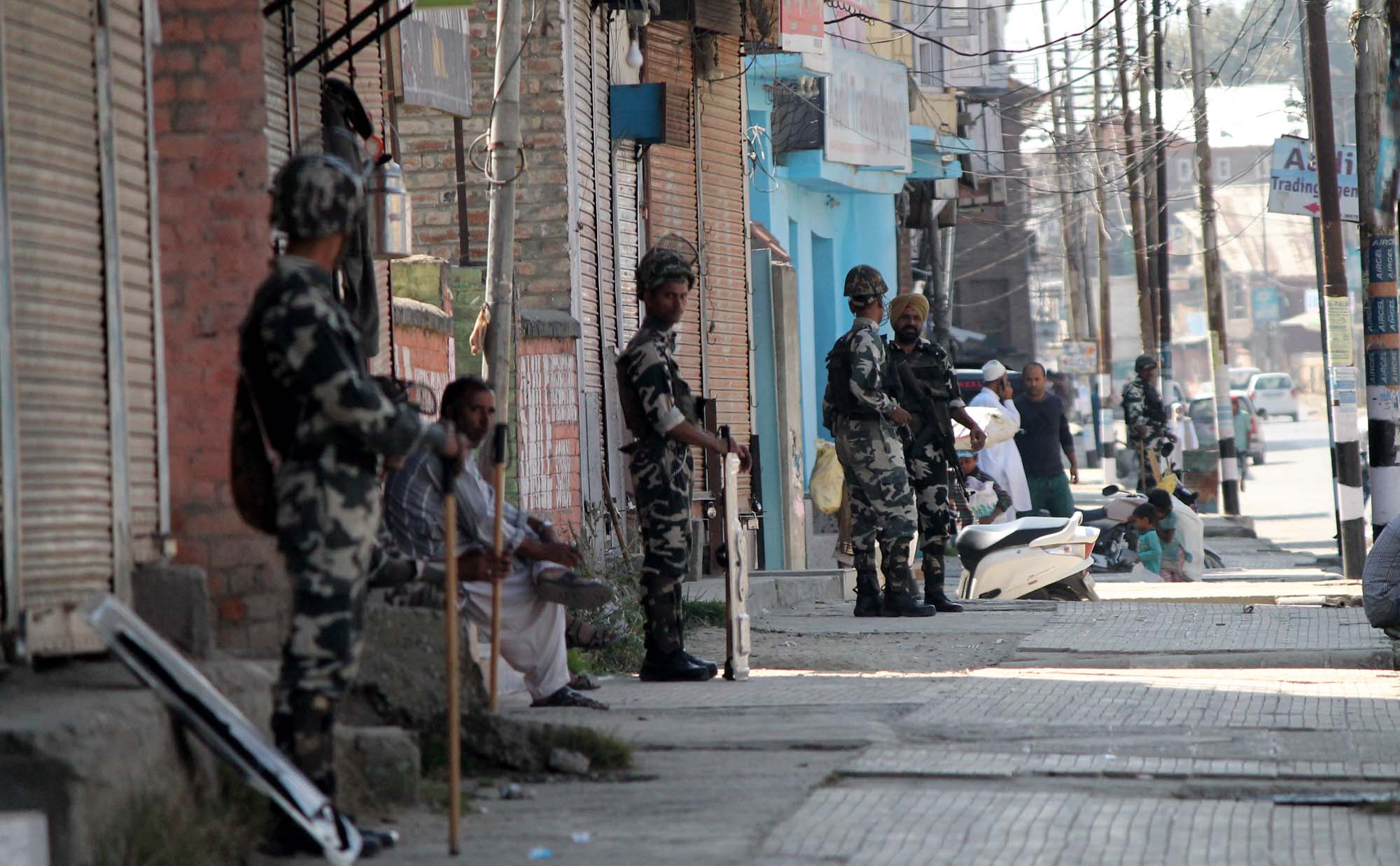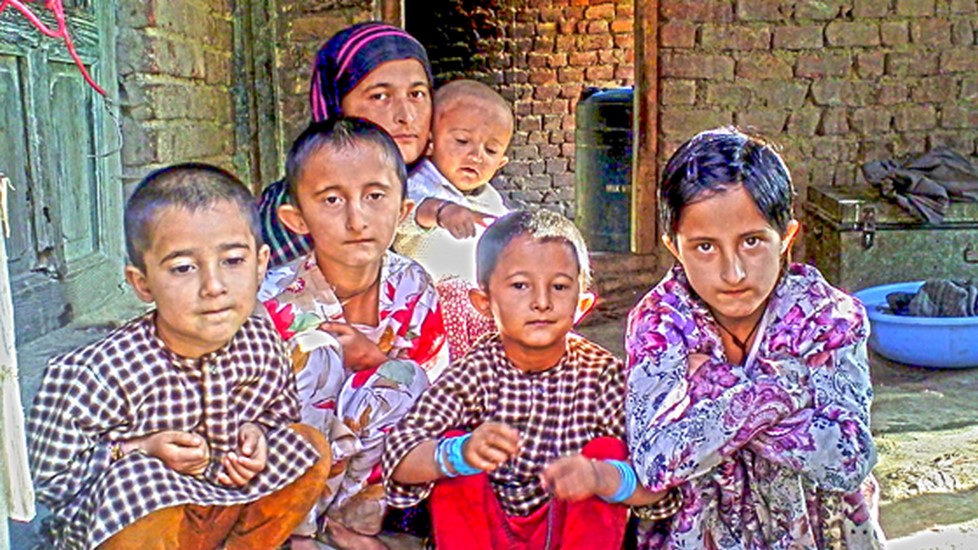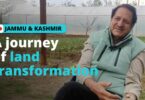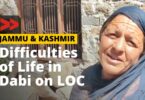A month and a half after Kashmir saw the worst floods in a century, rescue and rehabilitation have yet to reach a majority of the survivors. It was civil society that stepped up and started the initial rescue efforts; the army and government’s response to the crisis was less than inspiring. The government of Jammu and Kashmir has made an initial estimate of the losses, which have been pegged at about INR 1 trillion; 12.5 lakh families have been affected.
With the onset of winter, there is little time to finish the rehabilitation work. Video Volunteers’ Community Correspondent Nadiya Shafi writes about the heart-ache she has witnessed and lived through in the past month.
“I started taking pictures of the floods since the moment I got home safe. They speak for themselves showing the miserable outcome of catastrophic floods, which victimized more than 60% of the Valley’s population. I had been trapped for more than ten days on the third storey of my neighbour’s house. My one storey house was submerged in water. Everyone trapped was praying for his or her life.
I fail to find words to express the horrible situation all of us were confronted with. Terrifying speed and water levels of over 10 feet level created a dreadful scenario. Everyone, irrespective of age or sex, feared for his or her survival. For 10 long days no one came to our rescue except for a single chopper sortie that, to our relief, dropped some eatables on the slab of my single storeyed house.
It was finally on 16 September when some of my relatives came to our rescue and managed to take three ladies including myself and two other pregnant ladies and an infant in a Sintex water tank to a flood free area.
After this I visited affected areas to take stock of the situation. I cried a lot—why is this happening to us? I asked myself, where is the government? Where is the Chief Minister? As we know, 5years ago, the J&K Government was made aware that we are a flood prone area. Then why didn’t the government take safety measures against the flood? If they had taken the right action at the right time, the situation would have been different.
While visiting different areas of Rajbagh— Karan Nagar, Ikhrajpora, Jawahar Nagar, LalChowk, Bal-garden, Chattabal, Bemina, Batamaloo, Nawabazar, I had several conversations with the people of these areas.
They said they have not been provided any kind of help by the government. They were helpless and hopeless because they did not have a place where they could stay. They didn’t have food to eat or clothes to wear. Whatever they had was broken or spoiled. They were living a miserable life during that period [initial days after the flood]….
In IkhrajPora. 200 people had been trapped in the main branch of Jammu and Kashmir Co-operative Bank building. It was very unfortunate to hear that there were no announcements or alerts regarding the flood at all. They were not told to leave their homes and go to safer places.
The people stayed for many days in the bank building waiting; all thirsty and hungry. They were eventually rescued by a houseboat-wallah. During those days the houseboat people helped them a lot, without taking any compensation from the survivors. A houseboat-wallah and his family were real hearoes for the people of IkhrajPora. Unfortunately I was not able to meet him, I wanted to click his picture in order to give an example of bravery and kindness to others.
I have spoken to many flood victims who have complained about the callous and stubborn attitude by the administration and the other NGOs. At the same time there is an overwhelming praise for the Kashmiri youth from flood free areas who had rescued at the cost of their own lives.
The devastating floods, besides taking so many precious lives, have washed away the property worth thousands ofCrores— houses, bridges, bunds, roads, shops and other infrastructure. One fails to understand how the losses would be compensated and how many decades will be required to do so. The rehabilitation process is slow and the people are losing hope with the passage of each day.”

